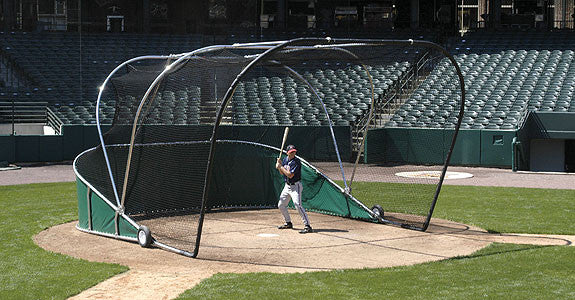I would like to add a little something to the question I had yesterday: do you think it's valuable to have outside instruction at facilities, personal instructors, coaching our individual level. The answer that question in my opinion and my opinion is is my opinion after were 50 years in the game. The answer is both yes and no. It's yes if the player really wants to go it's yes if the players really willing to listen it's yes only if the player is willing to do the work outside of instruction. There's no magic formula a player that can hit the ball cannot go to an instructor or to a camp or to the facility one or two times then all of a sudden get the ability to hit the ball. What all that instruction does is allow him to get the knowledge so that he can work on it correctly outside. There is a reason players are better when they get the time from their parents, brothers sisters, friends all those things that cause them to do the skill over and over.
Don't get me wrong if it's enjoyable and the kid wants to do it is an activity then perfect if work for you and the player then do it and enjoy it. But it won't make any difference if all you do is go once a week and never do anything outside of it. Nothing is accomplished one day a week has to be done consistently and often.
The saying is true we have to enjoy the journey because the destination is hard to get to and a long ways off.
Coach Arnald Swift

Player/Coaches/Parents
If you experience at getting to play BB or SB this summer it has not been good.
BUT please take it on yourself to get ready when the time comes. There is a lot you can do in the backyard with a baseball or tennis ball. Don't use the excuse you DO NOT HAVE a cage, equipment, others to play with do it yourself.
Tennis ball against a wall for fielding, ball on roof and catch the roll off, throw into a blanket, hit off a homemade tee into the blanket, stay busy and think so you are ready when the time comes to play.
Coach Arnald Swift
I've been reading a lot about travel baseball here recently and how much time and effort spent the dedicated to it. For my own personal experience my grandson has now devoted since December until probably September/October to baseball. They been having practice once or twice a week since after Christmas and as of today March 12th 2015 they've only played one game both of those in a practice tournament.
now that you have the picture the question is is that good for him, as a coach 34 years at the high school level in a coach for well over 40 years I question it. Every study you read there has been much of it recently indicates that players become better athletes, begun better people, and are just better off all the way around in their life if they have diversity. Now I'm not saying there's not a time to start to dedicate to single sport that time is not when you're young by my definition young means actually under 18, though I'm sure somebody will argue there but I believe were kidding ourselves if we think we can make players starting at 8 or 9 years old and do nothing but a single sport. I would be willing to bet a lot of money that for every one athlete that goes on it becomes very good in that single sport they dedicated all their time to there are probably close to 100 that quit or find another sport.
So I'm going to offer this piece of advice you know you're doing your right by your player when you do what the player asks, there's the keyword what the player asks not what you thinks good not what you thinks should be done but what the player wants to do. Now don't get me wrong once you start doing something do it right, and even do a hard but please don't make your player become dedicated to a single sport at a very early age or even up to high school. The odds of them becoming a better person are enormous compared the odds of them becoming a professional player. Think about it you and your kids will be happier if they diversify and enjoy and have fun.
Coach Arnald Swift's-- 69 years a dad 45 years umpire and 50 years as a coach
Jeannie
thank you for the question would be happy to come in on as I've been faced with this very problem with my two boys and, so the kids that I've coached over the 40 years. This is going to be my coaches/dad answer.
There is no doubt in my mind you play for the team that is not highly ranked in your description. It has zero value for player development, player enjoyment, player advancement to sit on the bench. If you're not playing you're getting behind in a 10% playing time, top team really is nothing is nothing but late inning appearances, games that don't mean anything, games that are already lost or one that he would be getting in.
The only value playing with the team is the social interaction, and the prestige with that similar very thin when you're not getting to do anything to contribute. The one thing I can't see is how good he is and why he's only a 10% player, if there's a reason that he can overcome to become one of the 90% players and that's what he needs to do but he's going to do it by playing6 not sitting on the bench.
Then finally let me say one thing is a coach and a the may sound a little harsh this is 13-year-old baseball there no scholarships, there's no real glory outside of what you give it to yourself, there's going to be at least five more years of trying to become a player. When it really counts is in the high school, or the 17 and up summer teams. But he'll never make those sitting on the bench. He needs to be playing. Now if a boy or girl is a player and they are playing and they should be moving up within their age brackets play the top competition that's available. But they have to be able to play and succeed.
Let me ask you a question when I was coaching basketball in a very small high school I was the JV coach. We had a senior that was not very good in fact he was going to get cut as a player but he was a super kid is a person so we gave him the choice, a rare choice of high school, that as a senior he could play on the JV team and play not to set. He chose to be the 13th man 12 man squad at the high school level instead of to play at the JV level. So in reality he didn't play at all and all the games that season he probably got on the floor maybe a total of five minutes. So my question is was he right or wrong. To me that's the same question you're asking here is better to sit or better to play. It's always better to play in my mind and in my advice.
Coach Arnald Swift
34 years of teaching, 40+ years of umpiring, 40 years of coaching at all levels from youth to D1, coached almost every sport there is one point of the other.
I would like to say a few words about young players or even older players concentrating on the single sport to early in life. This is going on because my grandson all of a sudden is decided he didn't want to play basketball this year that he only want to play baseball. I was in particularly in favor but he is 10 years old and he's going to change his mind more than once that's a guarantee. What's happened on a practical level is that there is no baseball for him to concentrate on so the only thing he's doing is going to the cage once in a while it hitting with that's not really practice. But more importantly I think it's a matter he's not getting the life experiences that he would enjoy playing all the games with all his friends. I encourage parents to really get their kids to try many different things. Sports aren't any different than food, entertainment, academic interests, arts and science, all that kind of thing. I don't think there's a parent out there that doesn't hate when their kid just sits in front of the TV or in front of the videogame. But I really don't see that much difference between those two activities only doing one sport during the developmental years.
I'll even add a second story of a young man I know in California that only play baseball up until the time you said during his freshman class, 2016, at that point he decided he didn't like being left out social circle so he was going to play football. As it turned out he was relatively good enjoyed it and says he's going to do it again, now he's playing freshman basketball again doing very well, and then in the spring he will play baseball. The real point of this is that he tried to stay with baseball only up until the time he was 14 years old all of a sudden he decided that he would like to try these other things, you did and he's turned out to be good at it and enjoying all the benefits. Therefore I think the take away would be it's never too late to start doing other things.
If we as parents, grandparents think they were going to build an athlete it's going to get college scholarships, pro sports, or in any way have sports be part of his life from a financial side then were fooling ourselves. The mathematical odds of these things happening are extraordinarily high and then the truth is we spend more money trying to get this accomplished that we never spend on the scholarships if we didn't have the sports. Sports and competition are for enjoyment in the real benefit comes from playing the sport, being part of a group, and having your family be with you while you're doing it.
I wrote this both from first-hand experience with my boys, my grandkids, and what I believed as a coach for over 40 years. What are your thoughts?
Question from a coach: We have players that are constantly late to practice, one boy in particular. What is the best way to handle it. He is one of your best players. Should we not start him, not play him, punish him by running. What do you think?
Frustrated Coach Schmidt
==============================
Coach this is a constant problem with coaching, and every coach that is actually coached more than one day he has had this problem. The first time you might talk to him and his parents if there are involved but with the ongoing problem there needs to be some kind of discipline. And you have to balance it between penalizing the entire team, being fair getting your point across to the player. So really it probably needs to be a hierarchy of what you're going to do. This first one may be a little late but I found if you make them stay after practice even if it's just for a few minutes telling them you need to make up some work they really don't like that and the parents will take notice also. If you have a young enough team that may work very well as parents get to be nervous that you're eating into their time.(Not to mention your eating into your time by staying after). The second level to just send the player home or exclude him from practice. This works very well with school team player then the next practice have him to physical drills as punishment. What we want to do in all this is not have him quit or harm the team. BUT the last deal is missing playing time or a game.
Explain that he took time from the other players, the coach's, parents all those that are supporting him Now we have to take time from you to impress on you the importance of being there all EVERYONE not just yourself.
Darryl to Coach Arnald Swift
I was holding the radar gun (Striker (sic) STALKER but I don’t know the model number) for my nephew. Being a physicist rather than knowing anything useful about baseball, I noticed it read to one decimal point from which I inferred it was measuring speed to the nearest 0.01 mile per hour and the rounding to the nearest 0.1 mile per hour. I asked him if he knew what the accuracy of the gun was and its precision and he didn’t so my 1st question is what is the accuracy and precision of your guns. My second question is how close to parallel to the balls flight path must the gun be pointed before it begins to reads wrong due to the misalignment and does anyone ever worry about that? I think he is very happy with the gun, I was just wondering about these things so thought I would ask.
==================================================
Darryl
I apologize for not getting back to you with my thoughts and comments on your letter, somewhere other this got send it to spam and I just discovered it today I had no means or way meant to slight you because the question is interesting. I taught math and computers and so I also think a little bit like yourself.
As far as the accuracy of the guns even the most accurate of guns don't actually read in the hundreds of a mile, it's common to see 10th of a mile but when we use the professional guns made by Staker (most popular among professionals) they read in miles per hour not hundredth or tenths from a radar gun on a baseball or any other sports ball.
A radar gun reads in a direct line best so when doing baseball to set up behind the pitcher or behind the catcher in a straight line to get the absolute most accurate reading. Then also remember that the radar field measures about 30 feet away from the location where the ball started or stopped. It's interesting to note that the speed of the ball out of the hand at 30 feet is faster than the ball at the catcher 30 feet away into his glove. Simple physics in a way the ball is actually slowing down on its way to the plate and perception but it is a little bit slower as it reaches the plate. For baseball people the most accurate is at the plate because that's where the batter has to hit it.
Now the angle of reading the flight of the ball is ideally 0 to 10° but you can get relatively accurate readings up to about 20° of variance the good guns have the ability to do some math internally and get an accurate reading from off a direct line. And one other factor that you did mention is how far away there are some smaller versions, cheaper versions, that need to be within about 20 to 30 feet to have any accuracy at all then the professional type guns are accurate through screens, batting cages, that kind of material from up to 300 feet. I've always found it interesting that the manufacturers of police radars, have the same exact radar guns available to the sporting industry. They just change the recording devices to meet the needs.
Hope this helps in your thoughts and your curiosity and I certainly appreciate your interest and sorry about the time lapse.
Coach Arnald Swift BATCO
 Stalker Radar Gun Sport 2
Stalker Radar Gun Sport 2
Dear Coach
I am coaching a 9 year old baseball team and have been discussing coaching techniques with my assistants. My assistants think we should make players run laps and do push up when they constantly make the same mistake. I am of the opinion that repetition and showing proper technique is the proper way to break habits and correct mistakes. What is your opinion and when should discipline such as laps and push ups be used on the baseball field? Should lack of effort or hustle result in laps and/or push ups and if not what is your recommendation?
Thank you
============================================
Dear Mark
I coached nine-year-olds and laps or out to the fence and back does have its place but in my opinion that places only to get their attention not in any way shape or form for mistakes. Your coaches along with yourself need to teach technique and do the drills that allow the techniques to be used, and reinforce what's correct in what you're trying to teach and running laps and doing push-ups does not do that. Now the separate question is lack of hustle or lack of effort I found that setting against the fence is the worst punishment of all if you don't want to hustle you don't want to try then we don't need you bothering the other people make them sit up against the fence and just watch. So I can answer your question in three ways yes you can make them run to get their attention, but you don't make them run or do push-ups for mistakes in skill technique work, then isolate them if they don't want to pay attention or hustle they're just taking away from your time and the players that are trying to work and learn . You have to distinguish between discipline and punishment. Discipline is the ability to concentrate and do what you are asked to do at the time it needs to be done. Punishment is running, push-ups, isolation and they're meant to get a players attention and teach him the value of paying attention and learning discipline. As a coach you need to distinguish between the two of them with your players.
Best of luck.
Coach Arnald Swift
From Greg
Hi Coach,
Well, it’s been 3 years since I sent this email to you. You said to let you know how things are going. I took your advice and found an academy for my son to attend. It’s a four hour round trip to Springfield, MO to Midwest Baseball Academy. Kyle plays on the USSA 14U majors team. He just turned 14 a week ago. He’s 6’1” 182# and built like a brick school house. They put radar on him in August and he was throwing 87 mph. He carried a .470BA with 18HR.
After summer travel ball we asked the local high school coach if Kyle could practice with the high school team while they played fall ball. Needless to say Kyle was a little intimidated being in eighth grade and playing with juniors and seniors. Before their first game we told him not to be surprised if he didn’t get to play much, if at all. He started the first game at SS and had a fantastic performance. He batted third. His first AB, first pitch, 350’ HR. Second AB first pitch also 350’. He finished 4/5 with triple and single. The high school played 10 games in fall ball. He had 32AB, 8HR, 21 hits, 2 SO. He got to pitch in 5 games, 15 innings, 27 strikeouts.
For my wife and I here’s the best part. Kyle is a straight A student, is loved by all his teachers and class mates. He is a leader in class and sports. We spend so much time on the road together it gives plenty of time for “life’s lessons”. He’s very humble and is not always comfortable with the attention he seems to get from players, coaches, and even umpires.
I know this probably sounds like somebody’s bragging Christmas letter, but I try to listen to people like you when advice and cautions are shared.
Thanks again,
Kyle’s Dad
Greg Fincher
Dear Coach
My son is 8 years old, he has been playing baseball since he was 4 and I've worked with him since he was 2. My question is he kills the baseball when I throw him BP and when I pitched to him last season in coach
pitch but now he has to hit off of player pitchers and he is pretty much not swinging the bat at all. He just stands there and when I ask him about it he says that the pitches were not strikes. How do I remedy this? He just made a 9 year old select team and I have to fix this before the season starts or he is either going to lead the league in walks or strike outs via looking.... What is frustrating for me is he has a ton of power, he is
4'9" 100lbs and hits lefty, I know how to fix mechanical issues but this one is mental.
Thanks!
Sam
Dear Sam
Let's make sure of one thing first off the bat does he have good mechanical skills and does he batting practice pitching, tee work, soft toss work well and consistently. My guess is you're going to answer yes then I have to agree 100% that it's all mental. What your boys doing is he thinking way too much and not just seeing the ball and hitting it. I don't know if you have control on are not but if I was his coach and I saw these things I would start to correct it by telling him that he has to hit the next pitch no matter what and if there are runners on base and we can collect hit-and-run, but in reality what were trying to do is take the decision-making out of his hands and make him swing at the next pitch the matter where it is. You will actually need to do this for an entire game and yes he may swing at some bad pitches anyway make an easy out or two but he will swing the bat he will make contact I promise you that. It's a very odd thing when you take away the decision-making, batter that actually is pretty decent they almost always get the ball the matter where it is in the strike zone out of the strike zone it doesn't make a difference they will make contact because their swing is good and they're not deciding if I should or shouldn't swing they know that already so they're just trying to get the ball and they will. Now if you can't do that a game because you don't have the control and what you need to do is go in the cage and tell him swing of this one no matter what don't swing at this one no matter what and start to take away the decision-making. You're just trying to get him comfortable with looking at the ball coming at him and swinging at it not whether it's a ball or strike not whether it's a curve or fastball just see the ball and hit. You will be amazed at how effective that is.
Please let me know how turns out.
Coach Arnald Swift











 Stalker Radar Gun Sport 2
Stalker Radar Gun Sport 2